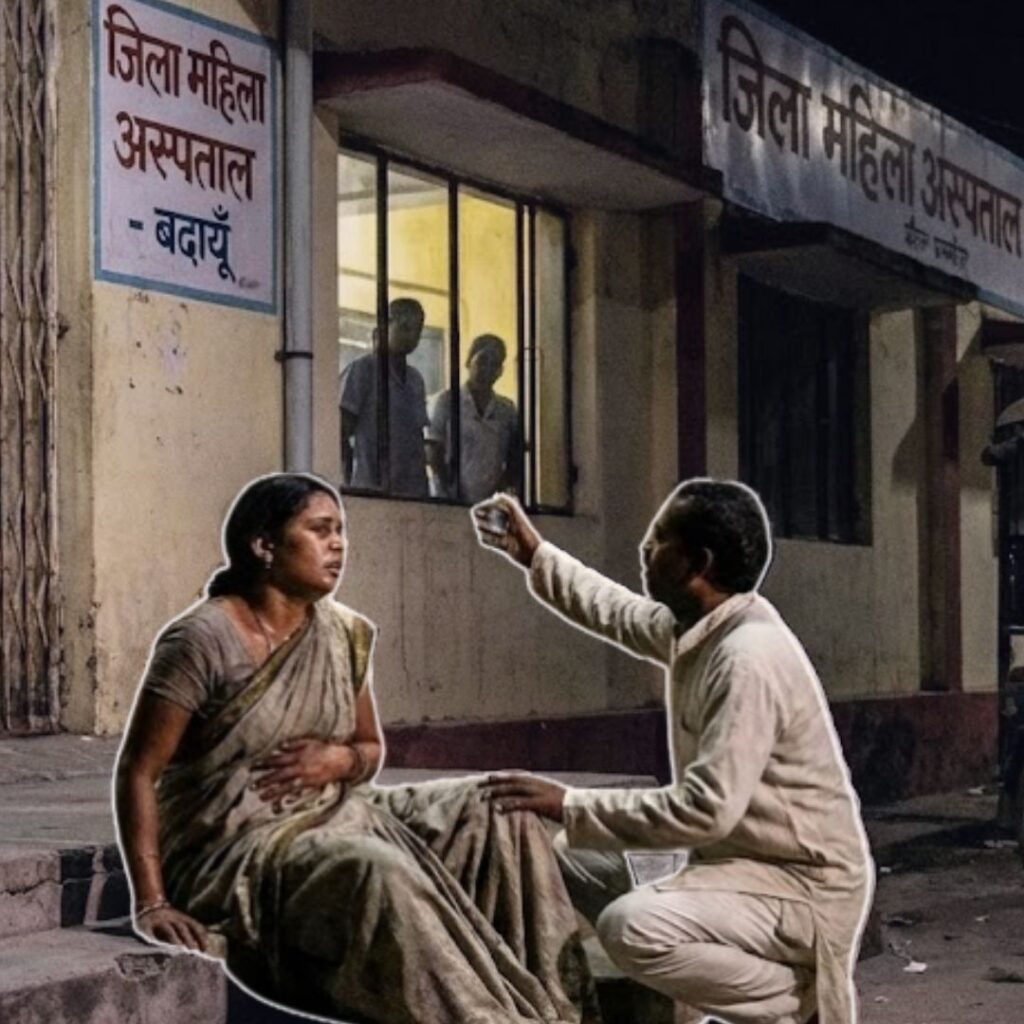In a harrowing incident on December 17, 2024, a 25-year-old woman from Palghar, Maharashtra, delivered her baby in an ambulance due to critical hospital infrastructure limitations and poor road conditions. The emergency delivery was successfully performed with a doctor’s assistance during patient transportation, highlighting significant healthcare access challenges in rural areas.
A Desperate Journey of Survival
Kalyani Bhoye, a 25-year-old resident of Palghar, found herself in a desperate situation on December 13 when she began experiencing severe labour pains. With no time to spare, her family rushed her to the nearest rural hospital, hoping for immediate medical assistance. However, as they navigated the poorly maintained roads of Maharashtra’s rural landscape, it became clear that reaching the hospital in time would be a challenge.
When the family finally reached the ambulance, Kalyani’s condition had worsened significantly. With no medical staff available at the hospital to assist her upon arrival, the ambulance became an unexpected delivery room. Under the guidance of a doctor who was on call, Kalyani delivered her baby safely inside the vehicle. This incident not only highlights Kalyani’s resilience but also serves as a stark reminder of the healthcare disparities that plague rural communities in India.
Systemic Healthcare Challenges
The situation faced by Kalyani is not an isolated case; it reflects broader systemic issues within India’s rural healthcare system. Many women in remote areas encounter significant risks during pregnancy due to inadequate medical infrastructure and limited access to timely care. The lack of well-equipped hospitals and trained medical personnel can force critical medical procedures to occur under less-than-ideal conditions, endangering both maternal and infant health.
According to local health officials, Palghar district has been grappling with infrastructural challenges that hinder effective healthcare delivery. Poor road conditions exacerbate these issues, making it difficult for ambulances to reach hospitals in time during emergencies. This incident has reignited discussions about the urgent need for comprehensive reforms in healthcare access and infrastructure development in rural regions.
Official Response and Local Implications
In light of this incident, local health officials have acknowledged the pressing need for improvements in emergency medical services. The district administration has initiated an internal investigation to understand the circumstances that led to Kalyani’s emergency delivery in an ambulance. Officials are exploring ways to enhance the availability of trained medical staff at rural hospitals and improve road conditions for better accessibility.
Dr. Anil Patil, a senior health official in Palghar, stated, “We are committed to ensuring that every woman receives safe and dignified care during childbirth. This incident highlights gaps in our system that we must address urgently.” The administration is also considering community outreach programs aimed at educating expectant mothers about available resources and emergency procedures.
The Logical Indian’s Perspective
This incident demands immediate attention to healthcare inequities affecting rural populations. It raises critical questions about how we can collectively work towards ensuring that every mother, regardless of her geographical location, receives dignified and safe medical care. Our commitment to social justice calls for comprehensive healthcare reforms that prioritize accessibility, infrastructure development, and equitable medical services for all citizens.
As we reflect on Kalyani’s story, we must ask ourselves: What steps can we take as a society to advocate for better healthcare access? How can we support initiatives that aim to bridge these gaps? Engaging in constructive dialogue is essential as we strive for positive social change and improved health outcomes for all communities across India.











